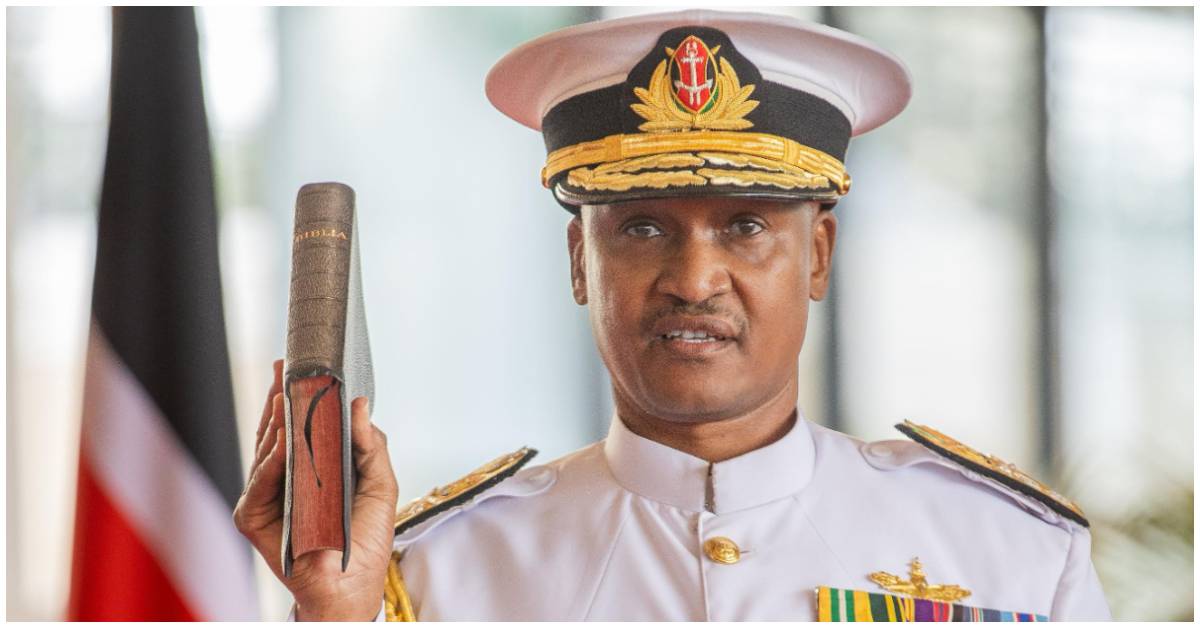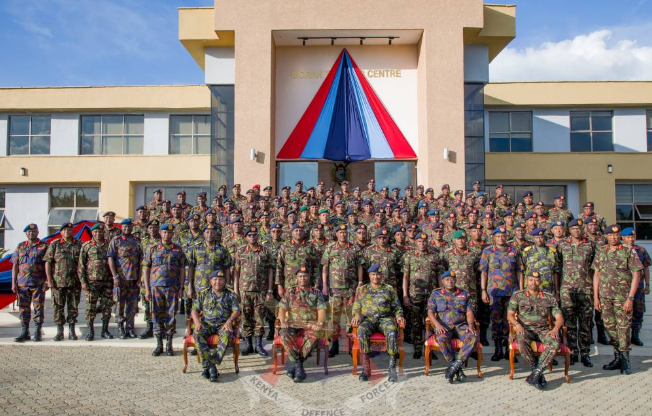General Kahariri must entrench Tonje Rules

A polished mariner was last week appointed and sworn in as the Chief of Defence Forces (CDF). President William Ruto made changes at the helm of the military in which accomplished naval officer Charles Muriu Kahariri took the top job.
Kahariri’s elevation was precipitated by the tragic demise on April 18 of General Francis Omondi Ogolla in a plane crash in the North Rift alongside nine fellow officers.
Ruto’s choice of Kahariri was largely informed by the so-called Tonje Rules, a set of highly popular unwritten succession guidelines mooted by the revered retired Chief of General Staff, General Daudi Tonje, 23 years ago. The rules stipulate that the position of CDF be rotated among the Army, Air Force and Navy.
The rules also dictate that the CDF retire after serving four years or attaining the age of 62, whichever comes first. In keeping with the same rules, at no time can both the CDF and his or her deputy come from the same formation.
Ogolla had succeeded General Robert Kibochi, who hailed from the Army, and was to be succeeded by an officer from the Navy, who happened to be Kahariri, who was already serving as vice CDF.
Ogolla’s name had been mired in political controversy, triggered by his presence at the Bomas of Kenya on August 15, 2022. He and other members of the National Security Advisory Council were alleged to have visited the presidential election tallying centre to ostensibly arm-twist top officials of the electoral agency to overturn the election of then Deputy President William Ruto as President.
The succession dicey was an intricate matter that required deep wisdom to tackle reasonably without raising eyebrows or causing tension and apprehension. Fortunately, reason prevailed and tranquility was maintained, to the satisfaction of many.
The Tonje Rules aside, the KDF’s require that appointments to its top leadership always reflect the face of Kenya. Before the rules were adopted, all heads of the military came from the Army, something that gave fillip to large-scale disquiet among the three arms.
In fact, it has been established that the friction between chiefs of the KDF arms was a key underlying factor in the 1982 attempted coup staged by junior Air Force officers against President Moi.
Though Ruto was not obligated to stick to the Tonje Rules, as they are not constitutionally binding, he nevertheless stuck to them as the most reasonable way to wriggle out of the tricky matter and avoid unwarranted animosity that characterised the military before 1982.
As I congratulate Kahariri for the befitting honour bestowed on him by the Commander-in-Chief of the Defence Forces, it is imperative that he maintains and deeply entrenches the discipline and respect that have existed since Tonje formulated the guidelines that now bear his surname.
Kahariri is a respectable officer. His colleagues speak highly of him and insist the soft-spoken soldier is the right person to head the military after Ogolla’s departure. They describe him as very reflective, cool , patient and listening team player.
Whereas no recent study has stated these observations, it is an open secret the Department of Defence is the least corrupt, the most disciplined and hardworking segment of the government. A decade ago, KDF was considered the sixth best disciplined military in Africa. My guess is that it must have improved tremendously since then.
That is why I am happy for General Kahariri and hope he will keep the name, fame, stability and respect of the forces he leads shining at all times. Best wishes, General.
– The writer is Revise Editor, People Daily —kwayeram@yahoo.co.ke












